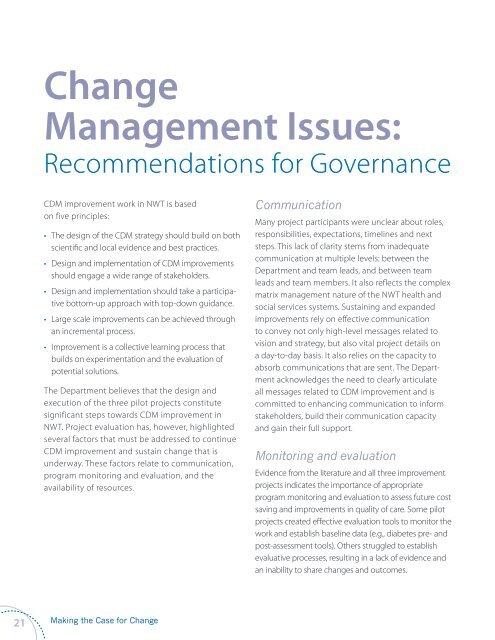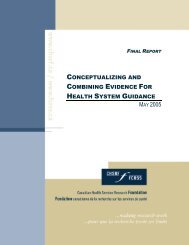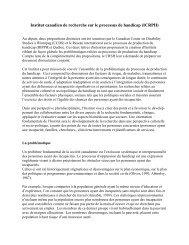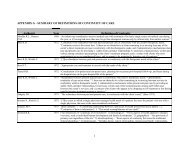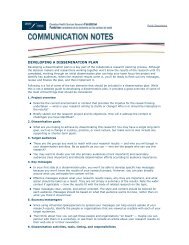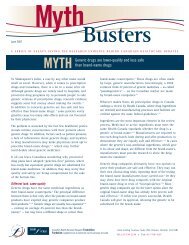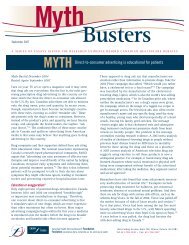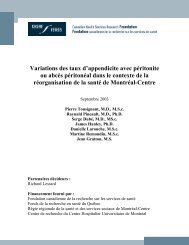Full Report
Full Report
Full Report
You also want an ePaper? Increase the reach of your titles
YUMPU automatically turns print PDFs into web optimized ePapers that Google loves.
Change<br />
Management Issues:<br />
Recommendations for Governance<br />
CDM improvement work in NWT is based<br />
on five principles:<br />
• The design of the CDM strategy should build on both<br />
scientific and local evidence and best practices.<br />
• Design and implementation of CDM improvements<br />
should engage a wide range of stakeholders.<br />
• Design and implementation should take a participative<br />
bottom-up approach with top-down guidance.<br />
• Large scale improvements can be achieved through<br />
an incremental process.<br />
• Improvement is a collective learning process that<br />
builds on experimentation and the evaluation of<br />
potential solutions.<br />
The Department believes that the design and<br />
execution of the three pilot projects constitute<br />
significant steps towards CDM improvement in<br />
NWT. Project evaluation has, however, highlighted<br />
several factors that must be addressed to continue<br />
CDM improvement and sustain change that is<br />
underway. These factors relate to communication,<br />
program monitoring and evaluation, and the<br />
availability of resources.<br />
Communication<br />
Many project participants were unclear about roles,<br />
responsibilities, expectations, timelines and next<br />
steps. This lack of clarity stems from inadequate<br />
communication at multiple levels: between the<br />
Department and team leads, and between team<br />
leads and team members. It also reflects the complex<br />
matrix management nature of the NWT health and<br />
social services systems. Sustaining and expanded<br />
improvements rely on effective communication<br />
to convey not only high-level messages related to<br />
vision and strategy, but also vital project details on<br />
a day-to-day basis. It also relies on the capacity to<br />
absorb communications that are sent. The Department<br />
acknowledges the need to clearly articulate<br />
all messages related to CDM improvement and is<br />
committed to enhancing communication to inform<br />
stakeholders, build their communication capacity<br />
and gain their full support.<br />
Monitoring and evaluation<br />
Evidence from the literature and all three improvement<br />
projects indicates the importance of appropriate<br />
program monitoring and evaluation to assess future cost<br />
saving and improvements in quality of care. Some pilot<br />
projects created effective evaluation tools to monitor the<br />
work and establish baseline data (e.g., diabetes pre- and<br />
post-assessment tools). Others struggled to establish<br />
evaluative processes, resulting in a lack of evidence and<br />
an inability to share changes and outcomes.<br />
21<br />
Making the Case for Change


